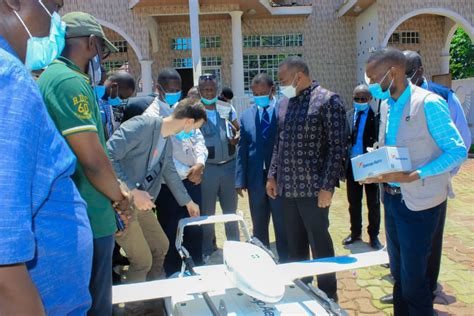By Nina Mitch
Kinshasa, DR Congo: Anxiety is palpable as family and friends wait patiently for the news of their loved ones admitted with Covid-19 symptoms at Amitié Sino-Congolaise Hospital located in the heart of DRC’s capital Kinshasa.
The Doctors and medical staff working round the clock to save lives are swamped up as the scene replicates with daily increases in the caseload of Covid-19.
When the index case was reported in the country in March 2020 at Amitié, the Minister of Health* Dr. Eteni Longondo assured the public that there was no reason to panic but now it is apparent that there is cause for public concern. The Minister says the second wave of the pandemic is sweeping through the country with devastating effects.
“We have realized that the second wave of Covid-19 is much more serious than the first, according to epidemiologists and data from the technical secretariat in charge of the fight against Covid-19. During the first wave, we never reached the number of 300 new cases per day. But now the contamination is so serious and we are exceeding that number” said Dr. Eteni.
The capital city Kinshasa with a population of about ten million people is the epicenter of the pandemic but there have been community super spreaders and new cases are being reported across 23 other provinces out of 26.
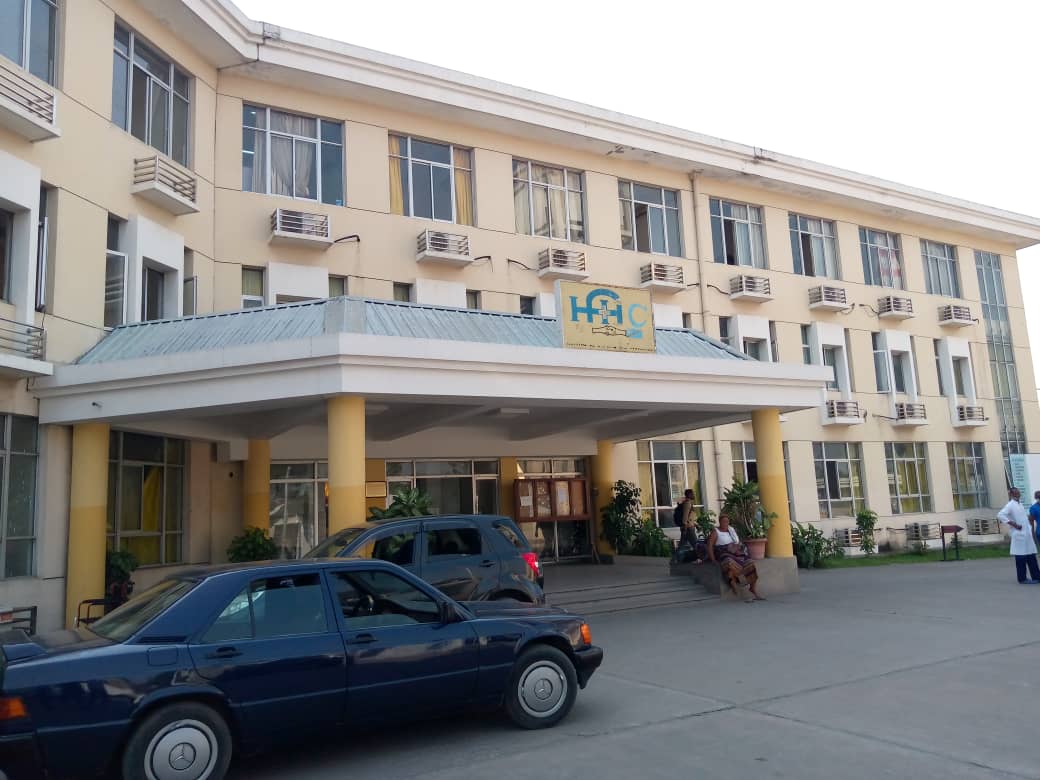
According to the World Health Organization (WHO) reports indicate that 30,757 cases have been reported in DRC with 779 deaths reported. While UN agency, UNICEF says it estimates it has received over 150,000 calls on their hotline from people seeking information about the pandemic.
The DRC government introduced and is enforcing the universal prevention protocol but is currently facing financial challenges explains Dr. Eteni.
“We don’t have the means yet but the government is making efforts to find the means. The most effective means is first of all sensitization and the measures that we have taken such as the curfew to try to protect our people against this disease, and the police also try to ensure safe distancing in churches and bars, it is just the means that is lacking’’ says the Minister.
Adding, “We intend to seek assistance from our partners, such as China, which provided substantial material support to the country during the first wave of Covid-19 in April 2020”.
The support given to DRC consisted of protective equipment such as masks, goggles, protective suits, blood collection tubes, nucleic acid extraction instruments, nucleic acid extraction kits, disinfectant wipes, protective aprons, shoe covers, breathing apparatus, thermo flash, high-speed refrigerated centrifuges, blood coolers. Not to mention three lots of donations from the Alibaba Foundation.
“China intervened during the first wave and we are in the process of contacting them to help us during this second wave, we are in talks so that we can be supported but for this second wave we have not yet received anything from them’’ noted the Minister.
However, because of the huge size of the country’s population that stands at over 90 Million has seen the capital city which is the epicenter among other provinces benefits from the donations received, while some of the donated equipment such as the thermal imaging cameras are lying unused as no one was trained to handle them.
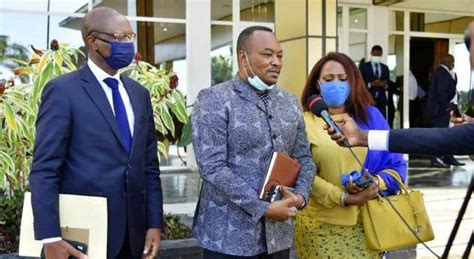
The Chinese government is said to have sent a team of twelve experts to assist the authorities in Kinshasa in the fight against Covid-19. However, speaking to us anonymously, a doctor at Amitié Sino-Congolaise Hospital, says doctors who have been on the frontline never had a working session with the Chinese delegation.
“The hospital Amitié Sino-Congolese has been working in collaboration with the Chinese. We saw the Chinese coming hère from time to time, but I have never seen the Chinese doctors come for a session to exchange their Covid-19 experience with us local doctors who are on the frontline every day. Maybe they met with the medical director, but personally, since the beginning of the pandemic, I have not seen any input from the Chinese, we are working under the guidance of the response team as usual” said the Doctor.
The Chinese medical team said to be working at Amitié Sino-Congolese Hospital that was contacted, did not agree to make a comment. But according to the Medical Director of the hospital Dr. Giscard Kapanga, these Chinese doctors practice only Chinese medicine which is not recommended in the protocol of fight against the Coronavirus, they could not participate in the response.
“These doctors are not part of the Chinese delegation that came for the exchange of experience, they are doctors who work at Amitié Sino-Congolaise Hospital within the framework of the Sino-Congolese cooperation on medical plan,” said Dr. Giscard.
A member of the Parliament representing Tanganyika province, Cyril Awel, says China has done its part, especially since China itself, like other partners, also had to fight against the same pandemic. Nonetheless, Honourable Awel believes that China should intervene on different fronts.
“On the preventive aspect, China should intervene by providing the DRC with the necessary diagnostic means in each province for large-scale screening to identify patients and their contacts for isolation.
And on the curative side, by setting up emergency and intensive care units equipped for the management of serious cases of Covid. Also, the Covid mobile treatment centers in different provinces for the isolation and exclusive treatment of Covid patients” said the MP.
The province of Haut Katanga, which ranks third in the country’s most affected areas after the provinces of Kinshasa and North Kivu, with more than 2009 cases also benefited from China’s expertise during a videoconference and from donations made by China through the central government, according to Joseph Nsambi Bulanda, Provincial Minister of Health of Haut Katanga.
“China donated medical equipment to the multi-sectoral committee at the national level and even medical teams came to strengthen the teams of the DRC and we had also been in contact especially by teleconference and our teams. Their experience was really helpful to us” said the Provincial Minister of Haut Katanga.
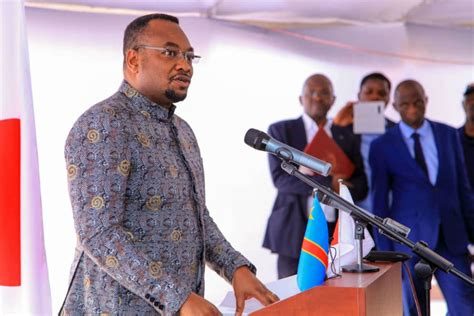
Haut Katanga province located in the southeast of the DRC is a gateway to Southern Africa. Here the population does not respect the barrier measures imposed by the authorities and hardly will you see a person with a mask on the road, in a bus, or in a cab. Only the curfew from 10 pm to 4 am is obeyed. According to the provincial Health Minister, health service officers are committed to ensuring that all outgoing and incoming travelers test negative for PCR and are routinely screened at the border.
“This allows us to remain in line with the national policy on the fight against coronavirus. But also, in the province, we have a provincial control plan that is modeled on the national model but with specificities at the level of our province since we are a province open to southern Africa” says Nsambi.
Adding “We have a great specificity, it is the South African variant and a pendular movement at the border of Kasumbalesa and at Mukambo that we try to take into account for these aspects”.
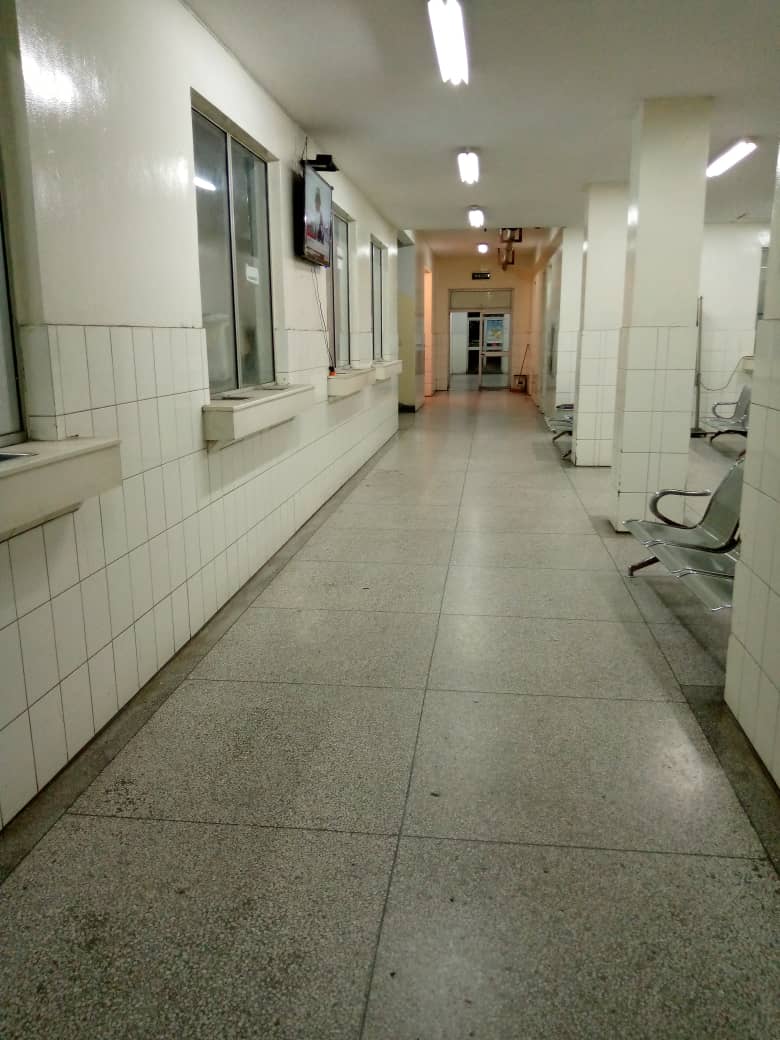 Since the discovery of vaccines, the priority of countries around the world has been acquiring the vaccines to protect their citizens while maintaining the prevention protocol. The government of the DRC is now looking in this direction but it is a tall task.
Since the discovery of vaccines, the priority of countries around the world has been acquiring the vaccines to protect their citizens while maintaining the prevention protocol. The government of the DRC is now looking in this direction but it is a tall task.
The vaccination against the Coronavirus with the AstraZeneca vaccine, which had been suspended because of blood clotting reported in some European countries, has finally started all over the DRC since April 19. It is a voluntary exercise but will start with health care and social workers who represent 1% of the population according to the Ministry of Health.
The DRC has so far received 1.7 million doses of the AstraZeneca vaccine, which expires on June 24, 2021. 1.3 million doses which are 80%, were returned to the WHO for redistribution to other countries before expiration. Among the countries that will benefit from this batch are Ghana, Senegal, Togo, Angola, Madagascar, and Comoros.
Getting the vaccines is one challenge, vaccinating the people who distrust Corona Vaccine will be another. Both are daunting tasks for a government that is grappling with huge financial challenges and poor road infrastructure.
The Government has a huge task trying to convince its population to get vaccines and respond to the pandemic. In the meantime, the medics at hospital Amitié Sino-Congolaise in Kinshasa are fearing a third wave of Coronavirus.
*By the time we went to the print there was a cabinet reshuffle in the DRC Government and Dr. Eteni Longondo the Minister of Health we interviewed for this story was replaced by Mr. Jean Jacque Mbungani.
This story was produced in collaboration with Wits journalism Africa China reporting grants.

